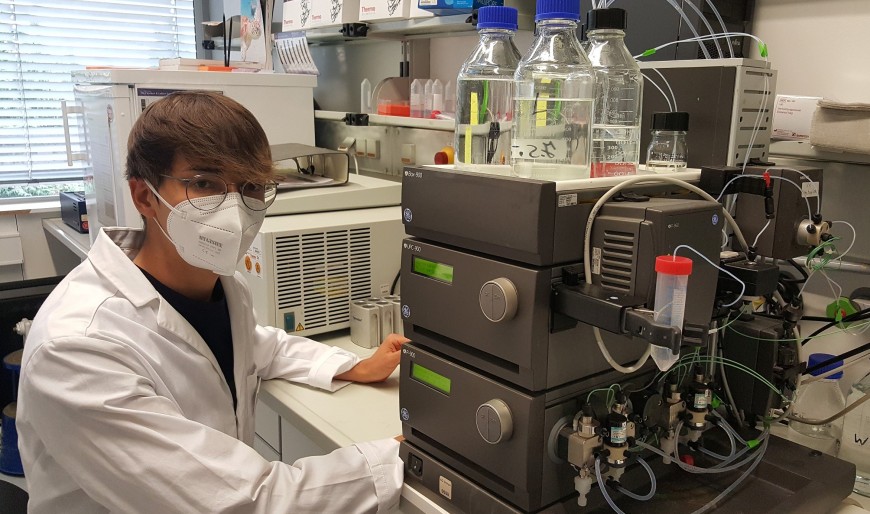Syntrophic methane production elucidated
Recent publication in PNAS in collaboration with the Department of Biology
2021/10/06
Researchers from Freiburg, Darmstadt and Bern identified a novel key enzyme involved in methane production from complex biomass by microbial communities.

The degradation of biomass under anoxic conditions is catalysed by dedicated microbial communities and usually results in the production of methane. Within a complex food web, fermenting bacteria produce short chain fatty acids that promote the production of hydrogen gas, carbon dioxide and formate, the substrates of methanogenic Archaea. Now, a key enzyme of such syntrophic, i.e. cooperative, interactions was identified und characterized in detail. This enzyme, called EMO, is a novel and widespread bacterial oxidoreductase residing in the membrane of the bacterium Syntrophus aciditrophicus. It plays a key role in an energy conserving electron transport chain that connects the oxidation of fatty acids with the production of formate from carbon dioxide. Interestingly, EMO uses the unconventional redox mediator compound methylmenaquinone (MMK) to transfer electrons to a formate dehydrogenase. The research results have been published in the journal Proceedings of the National Academy of Sciences of the United States of America (PNAS), based on a collaboration of the research group of Matthias Boll (University of Freiburg) with Dennis Wilkens und Jörg Simon from the research group Microbial Energy Conversion and Biotechnology of the Department of Biology at the Technical University of Darmstadt. The MMK biosynthesis pathway had been unravelled previously by the Simon lab and the corresponding MMK-generating enzyme from S. aciditrophicus has now been characterized.
